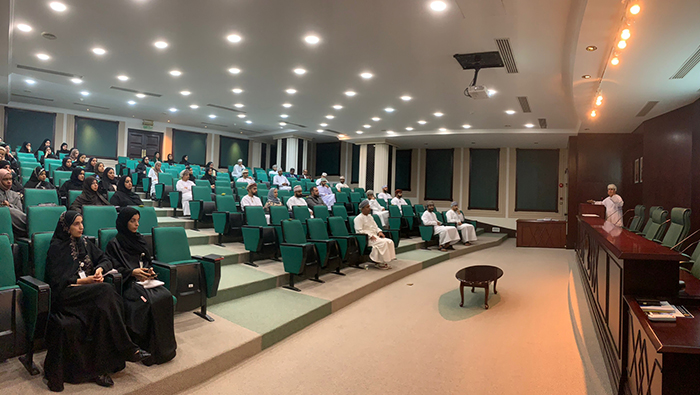
Muscat: Within the Capital Market Authority’s (CMA) endeavours to enhance combating money laundering and terrorism financing in the sectors regulated by the CMA, it held a session to discuss the most important results of the inspection for the year 2022 and to review the requirements of the risk assessment questionnaire for the companies licensed by the CMA.
The session was managed by Majid Mohammed Al Kiyumi, Director of the Anti-Money Laundering And Combating Financing Terrorism Department and was attended by compliance officers and the like in the companies regulated by the CMA in the capital market and insurance sectors.
The session was held to review the key observations of the audit visits and to present the new questionnaire and data, in addition to clarifying some of the concepts included in the questionnaire, correcting some errors made by some companies in the previous questionnaire further to obtaining more accurate information that reflects the operations and size of the company, answer companies’ inquiries and highlight the deadline for the mutual assessment process by the Financial Action Task Force (FATF).
Based on the inspection data of the year 2022, the aspects that needed to be strengthened in the anti-money laundering and combating terrorism financing process in companies were discussed. The session focused on ensuring that the risk assessment report includes the risk factors and due diligence measures taken in accordance with the requirements stipulated in the instructions.
For example; the existence of detailed assessment of customer risks, geographical location, nature of products and services and risks of delivery channels. The CMA also stressed the importance of including all data that must be available in the account opening form/insurance application form, as it was noted that some data are incomplete, and all identification documents of the client are not satisfied before opening the account. Moreover, information that would enable determining the level and source of income was not obtained.
The CMA pointed out the necessity of activating the role of the compliance officer by qualifying and training the compliance officers and granting them the powers stipulated in the instructions and enabling them to exercise their role, besides enhancing the awareness and knowledge of the compliance officer about the nature of suspicious transactions, reporting mechanism, and ensuring that the compliance officer is informed of the client’s information and any information related to customer due diligence, transaction record and other relevant information.
It is worth noting that the session is part of a series of programmes and workshops related to combating money laundering and terrorism financing implemented by the CMA represented by the Anti-Money Laundering and Combating Financing Terrorism Department in cooperation with various entities and experts in the field, which comes to achieve the awareness role of the regulated institutions in addition to its legislative role.